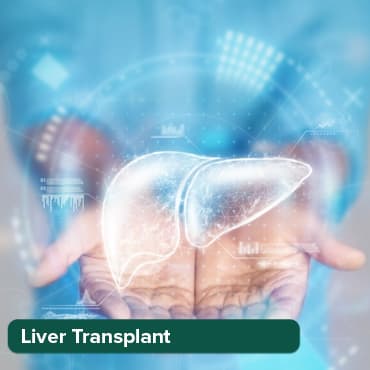
Throat Cancer Treatment: Approaches, Stages, and Costs
11 Nov, 2023
 Healthtrip Team
Healthtrip TeamReceiving a throat cancer diagnosis can be a daunting experience. However, understanding the available treatment approaches, the stages of cancer, and associated costs can empower patients and their loved ones to make informed decisions. In this blog, we'll delve into the various treatment options, explore the stages of throat cancer, and provide insights into the potential costs involved.
Treatment Approaches
Surgery:
- Surgery involves the removal of the cancerous tumor and, in some cases, nearby lymph nodes. It is a common approach for early-stage throat cancer.
- Types of surgery may include:
- Transoral surgery: Accessing the tumor through the mouth.
- Laryngectomy: Removing part or all of the voice box (larynx).
- Pharyngectomy: Removing part of the throat (pharynx).
Radiation Therapy:
- Radiation therapy utilizes high-energy rays to target and destroy cancer cells. It can be used alone or in combination with other treatments.
- External beam radiation and brachytherapy are common types used for throat cancer.
Chemotherapy:
- Chemotherapy involves the use of drugs to kill cancer cells. It can be administered orally or intravenously and is often used in conjunction with other treatments.
Targeted Therapy:
- This approach uses drugs that specifically target cancer cells while sparing healthy ones. It is a more precise form of treatment.
Immunotherapy:
- Immunotherapy enhances the body's immune system to recognize and attack cancer cells. It has shown promising results in treating certain types of throat cancer.
Stages of Throat Cancer
Understanding the stage of cancer is crucial in determining the appropriate treatment plan. Throat cancer is typically categorized into stages I to IV, with subcategories denoting the extent of spread.
Transform Your Beauty, Boost Your Confidence
Find the right cosmetic procedure for your needs.

We specialize in a wide range of cosmetic procedures

Stage ICancer is localized to the throat and is relatively small in size.
- At this stage, the cancer is localized, meaning it is confined to the area where it originated, which in this case, is the throat. The tumor is relatively small in size and has not spread beyond its original location. This is considered an early stage of cancer.
Stage II: The tumor may be larger or may have spread to nearby lymph nodes.
- In Stage II, the tumor is larger compared to Stage I. Additionally, it may have started to spread to nearby lymph nodes. Lymph nodes are small, bean-shaped structures in the body that play a role in the immune system. They can be found throughout the body, including in the neck. When cancer spreads to nearby lymph nodes, it indicates a slightly more advanced stage.
Stage III: Cancer has spread further into nearby tissues or lymph nodes.
- Stage III: At this stage, the cancer has progressed further. It may have spread not only to nearby lymph nodes but also into the surrounding tissues. This means the cancer has begun to infiltrate and affect areas adjacent to where it initially started. This represents a more advanced stage than Stage II.
Stage IV: has advanced significantly, potentially spreading to distant organs.
- Stage IV is the most advanced stage of throat cancer. At this point, the cancer has spread extensively. It may have not only invaded nearby tissues and lymph nodes but also potentially spread to distant organs in the body. This can make treatment more complex and challenging.
Cost Considerations
The cost of throat cancer treatment can vary widely depending on factors such as the stage of cancer, the chosen treatment modalities, and the patient's location. Here are some cost considerations to keep in mind:
- Medical Expenses:
- Surgery, radiation therapy, chemotherapy, targeted therapy, and immunotherapy all come with associated costs.
- Hospitalization and Follow-up Care:
- This includes hospital stays, post-operative care, and regular follow-up appointments.
- Diagnostic Tests and Imaging:
- Costs for initial diagnostic tests, such as biopsies and imaging scans, should be factored in.
- Prescription Medications:
- The cost of medications, including pain relief and those used during chemotherapy, should be anticipated.
- Rehabilitation and Supportive Care:
- Physical therapy, speech therapy, and counseling may be necessary for recovery and emotional support.
- Travel and Accommodation:
- If treatment facilities are located far from home, travel and accommodation expenses should be considered.
- Insurance Coverage and Financial Assistance:
- Health insurance coverage, government assistance programs, and non-profit organizations may provide financial support.
Treatment Modalities
- Surgery: $3,000-$4,500
- Radiation therapy: $5,000-$20,000
- Chemotherapy: $10,000-$50,000
- Targeted therapy: $3,000-$10,000 per month
- Immunotherapy: $30,000-$100,000 per year
Diagnostic Tests and Imaging
- Biopsies: $200-$500
- Imaging scans (CT, MRI, PET): $500-$2,000
Here are some of the top Throat Cancer treatment specialists
Dr. Deepak Sarin
Director Head And Neck Oncology , Cancer Institute Gurugram
Consults at : Medanta - The Medicity
Dr. Deepak Sarin is a head and neck oncologist in DLF phase II, Gurgaon and has an experience of 20 years in this field.
Most popular procedures in India
Atrial septal defect
Upto 80% off
90% Rated
Satisfactory

Coronary Angiogram a
Upto 80% off
90% Rated
Satisfactory

Coronary Angiogram C
Upto 80% off
90% Rated
Satisfactory

Liver Transplant
Upto 80% off
90% Rated
Satisfactory

Total Hip Replacemen
Upto 80% off
90% Rated
Satisfactory

Dr. N Syed Ismail
Senior Consultant , Medical Oncology
Consults at : SIMS Hospital, Chennai
- Dr. N Syed Ismail is a Cancer specialist with more than 15 years of experience, including 10 years of exclusive practice in the field of Medical Oncology.
- After initially doing his MBBS, he completed his MD and DM in medical oncology.
Conclusion
While facing a throat cancer diagnosis is undoubtedly challenging, understanding the available treatment options, being aware of the stages of cancer, and considering potential costs can help individuals make informed decisions. It is essential to consult with a healthcare team and financial advisors to navigate this journey with confidence and support. Remember, each person's journey is unique, and seeking timely and appropriate treatment is the first step towards recovery.
Wellness Treatment
Give yourself the time to relax
Lowest Prices Guaranteed!

Lowest Prices Guaranteed!




